By Richard Luthmann
The OneTaste prosecution in the Eastern District of New York presided over by Federal Judge Diane Gujarati (a former SDNY prosecutor), has become a legal farce. In addition to fatal misconduct by rouge FBI Special Agent Elliot McGinnis, the OneTaste case showcases how conspiracy law in America has spiraled out of control - and how judges and prosecutors have allowed it to.
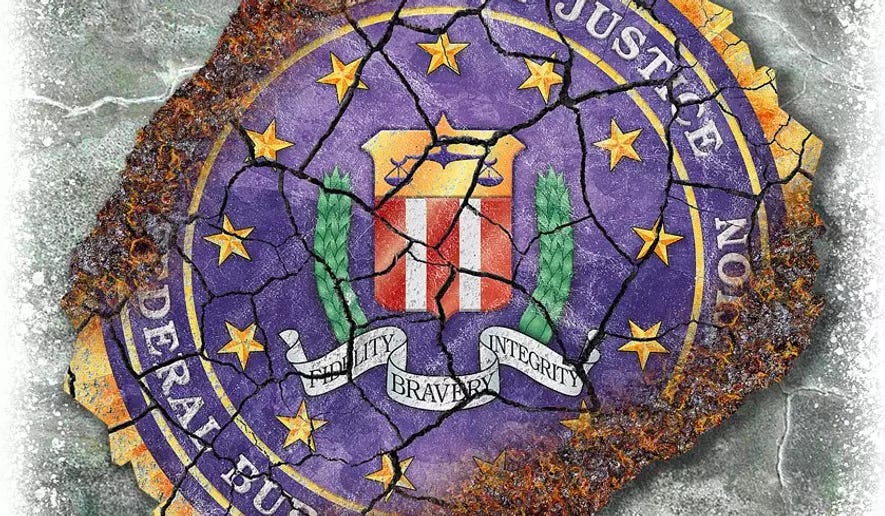
Nicole Daedone and Rachel Cherwitz stand accused of conspiring to commit forced labor, but here’s the kicker: the government doesn’t allege that anyone, anywhere, committed an actual act of forced labor. Further, they don’t allege anyone has committed any substantive crime - and they say they don’t have to.
The government is prosecuting an Orwellian “ThoughtCrime” through non-criminal ‘bad acts’ and proceeding as if it’s the most normal thing in the world.
Under American law, all members of a criminal conspiracy can be held liable for crimes committed by any co-conspirator during the conspiracy’s course. That’s Hornbook Law - the first week of law school stuff.
The OneTaste case flips this on its head. The government alleges that Daedone and Cherwitz led an organization that manipulated participants into providing labor, including domestic chores and sales tasks.
Yet, the government seeks to convict the pair on their participation in an “inchoate” or attempted criminal conspiracy. The government has not charged anyone with the actual crime of forced labor under 18 U.S.C. § 1589. Instead, they rely solely on an “incomplete conspiracy” narrative with SEX, SEX, SEX, lingering in the background—a move described as “a desperate stretch” by critics.
FEDERAL SEX: THE GRAND HYPOCRISY
"It's the first time in the history of the United States that anybody's been charged just with forced labor conspiracy alone without actually committing the crime of forced labor … The U.S. attorney wrote, 'We do not have to have any victims for the crime of conspiracy to commit forced labor.' All they have to prove is that the two parties conspired." -…
Frank Parlato, a celebrated journalist who has closely followed the case, wrote, “This is the first time in U.S. history that the government has charged forced labor conspiracy without evidence of substantive forced labor. The government essentially argues that coercion existed in the air, but no victims suffered actual harm.”
It’s a bizarre case, and the defense has a golden opportunity to expose the absurdity of these charges using what I call the “Reverse Pinkerton” strategy.
A Pinkerton jury charge, named for a famous U.S. Supreme Court case, established a defendant's liability for substantive crimes committed by co-conspirators.
It also sets its limits.
But in this case, there’s no identified substantive crime—no forced labor, no victims, no evidence of harm, no SEX, SEX, SEX Trafficking. So, why not throw it back in the government’s face? A Reverse Pinkerton is the vehicle.
The Genesis of ‘Reverse Pinkerton’
The idea of Reverse Pinkerton started as a “cocktail party” discussion among legal minds. How I found my way there, I have no idea. But I will admit, I was among those indulging in cocktails and hypothetical discussions. I must further acknowledge that to a person, all the lawyers I spoke to said the idea was insane and brilliant all at once.
I’ve been told that a lot in my life.
The idea is simple: turn the government’s standard approach on its head by using the legal doctrine most often employed to expand co-conspirator liability to establish the limits of the OneTaste conspiracy.
If you don’t believe this can be done, re-read Pinkerton.
In most conspiracy cases, a defendant can request and receive a Pinkerton Charge. The OneTaste defendants should also be able to request one here. The argument is that if no substantive crime occurred anywhere in the conspiracy, the defendants could not be guilty of conspiring to commit it.
Moreover, those facts must further be determined for due process (e.g., constructive amendment of the indictment), double jeopardy, and sentencing purposes (including relevant conduct and enhancements).
It seems like a solid argument and becomes a strategy fatal to the government’s case.
Turnabout is Fair Play
What has the government been saying about the underlying substantive crime(s) here? We don’t actually know. Judge Gujarati denied the defendants’ request for a Bill of Particulars.
When asked about substantive crimes, the government’s firm position is that they do not have to prove that the OneTaste defendants and/or their uncharged and unindicted co-conspirators committed a crime to sustain a conviction for conspiracy.
So why not throw it back in their face?
While Daedone and Cherwitz didn’t commit a substantive crime, one may have been committed by an uncharged, unindicted co-conspirator who we may hear from or about from the unknown “phantom witnesses.” We don’t know because Judge Gujarati hasn’t ordered the government to disclose their witnesses, even though they spoke to Ellen Huet of Bloomberg News and are known throughout the mass media.
The OneTaste defendants should want a Pinkerton Charge to ensure that their actions are considered distinctly from the substantive crimes of their uncharged, unnamed co-conspirators. The defense can use the Pinkerton charge to show the LIMITS of their criminal liability, relevant conduct for sentencing, and charged activity in the indictment for due process and double jeopardy purposes.
The jury charge could look something like this:
Conspirator's Liability for Substantive Crimes Committed by Co-conspirators; Conspiracy Charged-Elements
A conspirator is responsible for offenses committed by his/her fellow conspirators if he/she was a member of the conspiracy when the offense was committed and if the offense was committed in furtherance of and as a foreseeable consequence of the conspiracy.
Therefore, if you find a defendant was a member of the conspiracy charged in the Indictment and if you find beyond a reasonable doubt that while he/she was a member of the conspiracy, his/her fellow conspirator(s) committed offense(s) in furtherance of and as a foreseeable consequence of that conspiracy, then you should find him/her guilty of Count One.
The OneTaste defendants can use this approach to challenge the absence of substantive crimes altogether.
Why is this important? Because the law says so.
In United States v. Corr, the Second Circuit court clarified that a Pinkerton charge shouldn’t be used automatically. The Circuit Court specifically warned that this instruction is inappropriate if the jury has to infer that a conspiracy exists based only on a collection of unrelated crimes.
Here, the government’s position appears to be that there are no underlying crimes, only the “inchoate” conspiracy itself. The government is attempting to prove conspiracy through “prior bad acts” evidence (FRE 404(b)).
These are the same bad acts that the government will use to argue that Judge Gujarati should enhance the sentence imposed if the defendants are found guilty. These facts are also relevant to the constructive amendment of the indictment and double jeopardy, constitutional violations that could kill this or any future prosecution. The defendants must confront these facts as they are introduced into the evidentiary record and the right to have the jury instructed to see them in relation to the law’s dictates.
Not allowing a Pinkerton instruction here doesn't make sense unless the government provides new evidence or changes its tune that the conspiracy was a “choate” or completed conspiracy and identifies the completed substantive crimes.
The Road to Damascus
So, let’s say Gillian Kassner, Kayla Bensing, Devon Lash, and Sean Fern, the EDNY’s OneTaste prosecutors, have a ‘Road to Damascus’ moment and finally see the light concerning conspiracy law. Let’s consider that they argue that there are substantive crimes related to this forced labor conspiracy.
A fundamental tenet of the law of conspiracy is that a defendant can be held criminally liable for the reasonably foreseeable acts of his co-conspirator AND ONLY the reasonably foreseeable acts of his co-conspirator. United States v. Vario.
In United States v. Blackmon, the Second Circuit said that the jury could—but doesn’t have to—find conspiracy members guilty of crimes they didn’t personally commit if those crimes were foreseeable and carried out in furtherance of the conspiracy. Said another way, "Whether a particular substantive crime is foreseeable and in furtherance of the conspiracy is a factual question to be determined by the jury." United States v. Bruno; United States v. Gershman.
The contrapositive must also logically be true in a “choate” or completed conspiracy. If the government hasn’t proven that any crimes were committed within the conspiracy, the jury can’t find the defendants guilty of those crimes. This is the “limiting” aspect of the conspiracy law doctrine.
The defendants can't be held responsible without proof of actual criminal acts tied to the conspiracy. The same applies to relevant conduct, due process, and double jeopardy-related issues.
The beauty of the argument is that the focus of the trial strategy becomes having the government name the co-conspirators and the substantive crimes committed. So, they can (and will) parade all sorts of shit on direct. They will try to bring in the kitchen sink. They always do.
But it’s all a red herring. On cross-examination, the defense lawyer asks EVERY WITNESS:
Were you party to the conspiracy with the defendants as charged in the indictment?
What crime(s) did you commit?
If the government’s witnesses admit they were criminal co-conspirators, the government will have a slew of problems. Its witnesses will be basically destroyed.
And suppose the government was stupid enough to give immunity or a non-prosecution agreement. In that case, the defense will let the jury know right away that they are dealing with a STOOL PIGEON, a RAT fleeing from a sinking ship that would do anything and say anything to save their filthy hide.
When the government objects to the witness questions (to try to keep their case from imploding), the defense points to the Pinkerton Charge and says Daedone and Cherwitz have every right to ask these witnesses those questions. They are the legal elements of the charge unless the Court doesn’t want to give the charge. And if so, why not?
The floodgates open. The testimony of Ayries Blanck, Misha ‘Mike’ Safyan, Michal Neria, Mark Gottlieb, Joanna Van Vleck, Anjuli Ayer, and the rest of the government’s entire assembled conga line will not be in a festive atmosphere. In plain English: “This ain’t no fucking Mardi Gras.”
They will march into a firing line of these types of questions from Attorneys Jennifer Bonjean and Artie Aidala, both deadly on cross-examination. And it ain’t no fun when the rabbit’s got the gun.
Here’s a small taste of what you will hear from every OneTaste government witness:
Participation in the Alleged Conspiracy:
Were you ever directly told by Nicole Daedone or Rachel Cherwitz that you were required to participate in any illegal activity as part of your role at OneTaste?
Did you personally agree with anyone, including the defendants, to force or coerce others into labor?
Knowledge of Illegal Activity:
Were you aware of any explicit plans to force or coerce people into performing labor against their will?
Have you ever heard any conversations or discussions among the alleged conspirators about violating labor laws?
Involvement in Decision-Making:
Were you involved in any decisions related to the employment or duties of other OneTaste members?
Were you ever consulted or involved in planning any activities that could be construed as forced labor?
Scope of the Alleged Conspiracy:
Were you aware of a broader plan to coerce or force labor from other participants or employees at OneTaste?
Did you ever receive instructions from either of the defendants to coerce, threaten, or intimidate anyone into working?
Authority and Control:
Did you have any authority over the hiring, firing, or job assignments of others at OneTaste?
Were you ever in a position to enforce any actions that could be considered forced labor?
Personal Actions and Conduct:
Did you ever engage in or witness any conduct you believed was illegal or coercive?
Have you personally forced or threatened any individual to perform labor against their will?
Foreseeability of Crime:
Did you believe that any illegal actions, if they occurred, were foreseeable due to your work or involvement at OneTaste?
Were you ever made aware of specific plans or discussions to coerce labor as part of an overarching organizational strategy?
Understanding of Labor Practices:
Did you witness any individual at OneTaste forced or coerced into working?
Were there any formal or informal policies at OneTaste that explicitly required or encouraged forced labor?
Membership in Alleged Conspiracy:
Were you ever told that you were part of a conspiracy or agreement to violate forced labor laws?
Did you ever hear of any evidence that others at OneTaste were involved in such a conspiracy?
Government Witness Bias:
Do you have any personal or financial motives to testify against the defendants in this case?
Have you been offered any incentives, immunity, or reduced charges for your testimony in this trial?
Disagreements or Lack of Agreement with Co-Defendants:
Did you ever express disagreement or concern with any of the actions taken by OneTaste’s leadership?
Did you ever separate yourself from or distance yourself from any activities you believed were improper or illegal?
Judge Guarjati Boxed In
The Reverse Pinkerton strategy forces Judge Gujarati to make a ruling. There are but three likely results:
If the Pinkerton Charge is granted and the witness questions are disallowed, it’s a mistrial. The lawyers can always ask about the legal elements at play. How does the judge justify such a rationale with a straight face? Defendants may win at trial; definitely win on appeal.
If the Pinkerton Charge is granted and the witness questions are allowed, you tell the jury that EVERY WITNESS was asked if they were part of the conspiracy. They all said NO. Everyone was asked what substantive crime they committed related to the prosecution and OneTaste. They all said NONE. “Ladies and Gentlemen of the jury, you’ve heard it all from the mouths of the government witnesses. There is NO CRIME. Where is it? They didn’t prove it because the witnesses said it doesn’t exist.” It is very hard for a jury to find an OVERT ACT when there is no substantive crime. Why? How do you find someone guilty when the Government and all its witnesses admit that no one committed a crime? Defendants win at trial.
If the Pinkerton Charge is denied, Judge Gujarati must also explain why. This means the government will need to explain why the facts of the case don’t justify a Pinkerton Charge. That also means an evidentiary showing - further cementing the problem of bringing a naked conspiracy with no underlying substantive crime. Defendants may win at trial; definitely win on appeal.
Every result is a win of some sort for Daedone and Cherwitz. In all scenarios, the defense will be allowed to argue (and potentially in front of the jury) that no actual crimes were committed and that the defendants can’t be held responsible for things that didn’t occur.
These facts are independently significant in protecting their constitutional rights, including due process and avoiding double jeopardy, which arguments would be outside the jury's earshot. The OneTaste lawyers can argue that the government still has the option to file new charges (such as sex trafficking) if they lose this case or file a new indictment later.
Without knowing substantive crimes or uncharged and unindicted co-conspirators (as the government says they do not have to show), the government can continually move the “metes and bounds” of the charged conspiracy for double jeopardy purposes.
Judge Gujarati is in a hopeless legal position. Not allowing a Pinkerton instruction here would unfairly stretch the law's boundaries and violate the defendant’s rights, potentially subjecting them to prosecution twice on the same set of facts.
If this case reaches the Second Circuit, it may be dead on arrival. There is a litany of conspiracy cases in which the convictions were voided because the object of the conspiracy was entirely legitimate. For example, in United States v. Blackmon (mentioned above), the Second Circuit reversed the defendants' bank fraud convictions because the “victim” of the defendants' “fraud” was not the bank, and the bank withdrawals were completely legal.
Hmm. What the government says is a crime really isn’t. Does that sound familiar?
The Emperor Has No Crimes
What if defendants argued that their liability in a conspiracy case should be limited to actual, provable crimes? It’s an elegant counterpunch, turning the government’s own logic against them. Where prosecutors regularly seek to expand defendant liability under Pinkerton, they should also accept its limits.
The OneTaste case is tailor-made for this strategy. The defense could demand jury instructions highlighting that without a substantive offense, there’s no basis for the conspiracy charge.
Forcing the government’s witnesses to admit—under oath—that no member of the alleged conspiracy committed any crime could eviscerate their case. Imagine this question posed to every government witness: “What crime did you or anyone else commit as part of this conspiracy?”
When every witness answers, “None,” the jury will see the emperor has no clothes (or crimes) and begin to question what in the Sam Hill their government is doing.
Drunk on Power (and Bad Law)
This case reeks of prosecutorial desperation. Frankly, I believe the prosecutors must have been drunk when they dreamed up this charge.
Charging a conspiracy without a crime is not just unprecedented; it’s absurd. Worse, it sets a dangerous precedent, reducing conspiracy law to a procedural tool unmoored from substantive criminal conduct. It is the legal establishment of ThoughtCrime, plain and simple.
Conspiracy law in America has always been uniquely problematic. Other nations, including authoritarian regimes like Russia and China, don’t have such expansive “guilty by association” doctrines.
Conspiracy law here allows prosecutors to cobble together cases based on vague notions of association, feeding the prison-industrial complex with fresh bodies. The law exists not so much to promote justice but to compensate for prosecutorial incompetence.
If the OneTaste case succeeds, it will accelerate the erosion of due process in favor of procedural gamesmanship. The beachhead to authoritarianism in American law will have been established not by foreign influences or sharia law. Liberty and the rule of law will have been destroyed by Woke prosecutors trained in the most corrupt and slanted era of American justice, including those prosecutors who have graduated to the bench.
A Woke Fantasy Collides with Reality
This entire case is a woke prosecutor’s fever dream, enabled by a judiciary too eager to rubber-stamp government overreach. The government relies heavily on its own skewed press releases, media sensationalism, and particularly dubious reporting portraying OneTaste as a “Sex Cult.”
But headlines don’t equal evidence. Nicole Daedone and Rachel Cherwitz are Keith Raniere, not.
Prosecutors have yet to identify any act of forced labor or any victim coerced into work. Their case rests entirely on the narrative of coercion, devoid of factual support.
Here’s the irony: this prosecution could destroy the doctrinal foundation of conspiracy law. By overreaching, these Woke prosecutors have created the perfect test case for dismantling America’s flawed conspiracy doctrine.
If the defense wins, it could open the door to future challenges to a system that prioritizes association over individual culpability.
Will Trump End This Circus?
The OneTaste case may not even reach a verdict.
As Donald Trump returns to the White House, expect a seismic shift in federal prosecutions. A Pam Bondi-led Department of Justice would likely reevaluate—and dismiss—politically motivated cases like this one. President-Elect Trump said this earlier today:
For too long, the partisan Department of Justice has been weaponized against me and other Republicans - Not anymore. Pam will refocus the DOJ to its intended purpose of fighting Crime, and Making America Safe Again. I have known Pam for many years — She is smart and tough, and is an AMERICA FIRST Fighter, who will do a terrific job as Attorney General!
The current prosecution reflects a broader Woke agenda that weaponizes law to target select and controversial persons and ideas.
Under Trump, the DOJ might finally put an end to this circus.
The Stakes Are High
The OneTaste trial is about more than two defendants. It’s a referendum on the future of conspiracy law. The government’s case relies on the notion that guilt can exist without a crime, a doctrine as dangerous as it is illogical.
Meanwhile, the defense can show that the absence of substantive crimes undermines the entire charge. This strategy could expose the hollowness of the government’s case, forcing prosecutors to reckon with their own overreach and re-read Pinkerton.
The stakes couldn’t be higher. A victory for the defense could set a precedent limiting conspiracy charges to cases where real crimes occur. That would be a win for Daedone and Cherwitz and anyone caught in the web of America’s sprawling conspiracy laws.
This trial has become a cautionary tale about the dangers of prosecutorial overreach and the fragility of justice under an unchecked conspiracy doctrine. The question is no longer whether the OneTaste defendants are guilty. The real question is whether America’s conspiracy laws are compatible with the principles of justice they claim to serve.
The OneTaste trial marks the beginning of the end for “guilty by association” as the backbone of federal prosecutions. The government may have to do some crime-fighting and charge real, substantive, meat-and-potatoes crimes rather than charge a conspiracy and offer a draconian plea against unlimited criminal liability and jail time. It will be a turning point in American law—and long overdue.





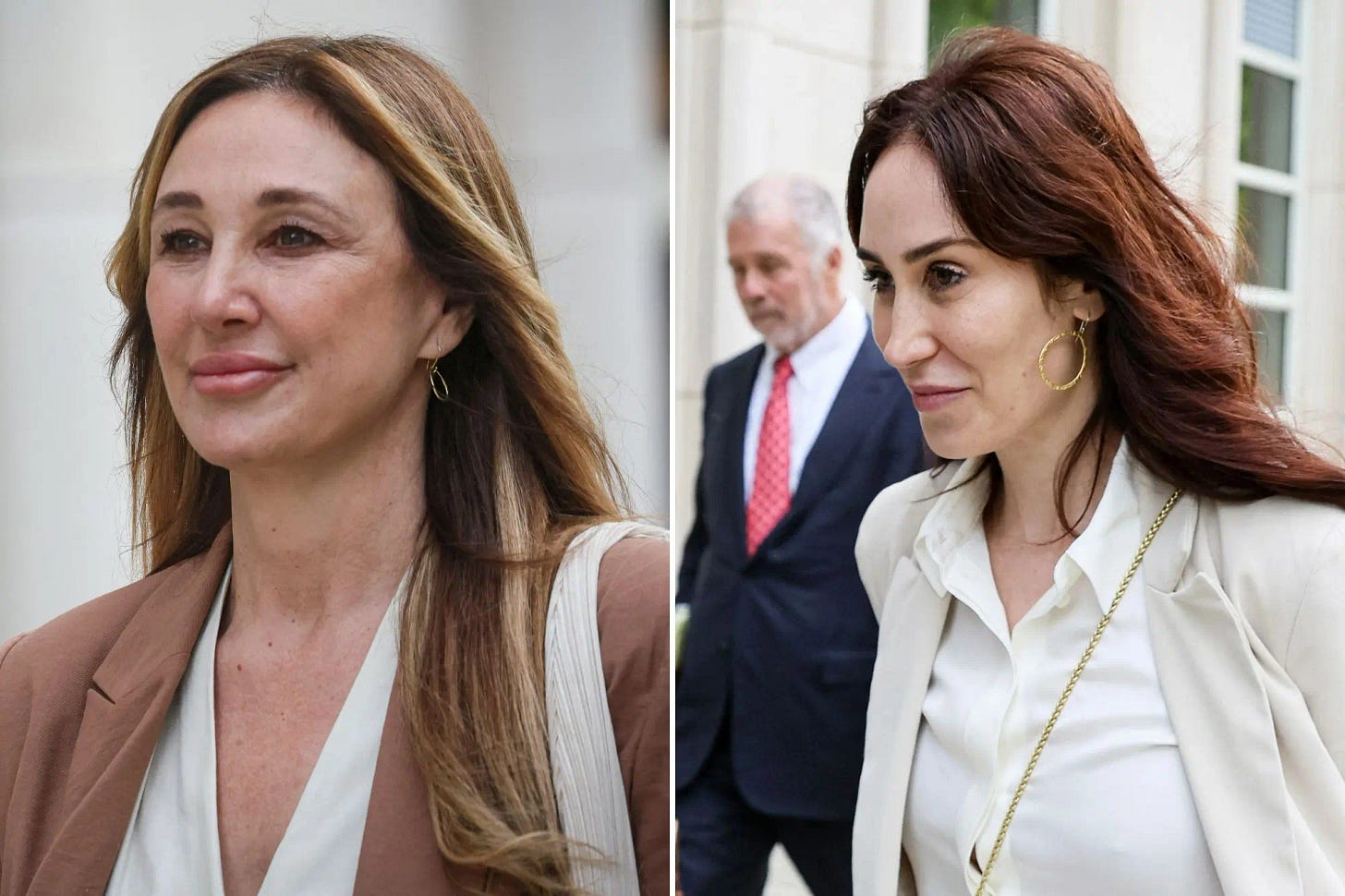
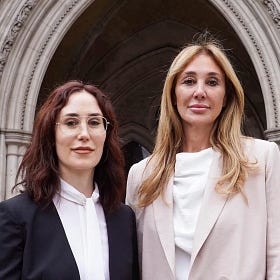

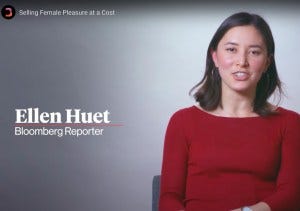


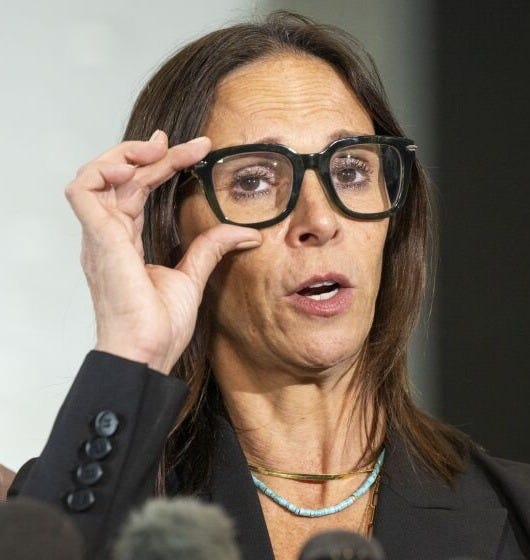

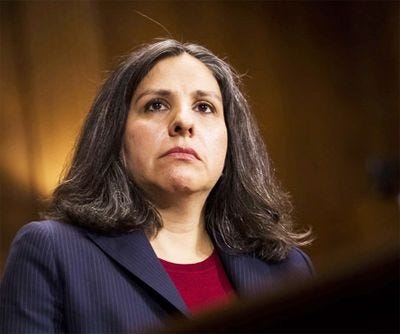


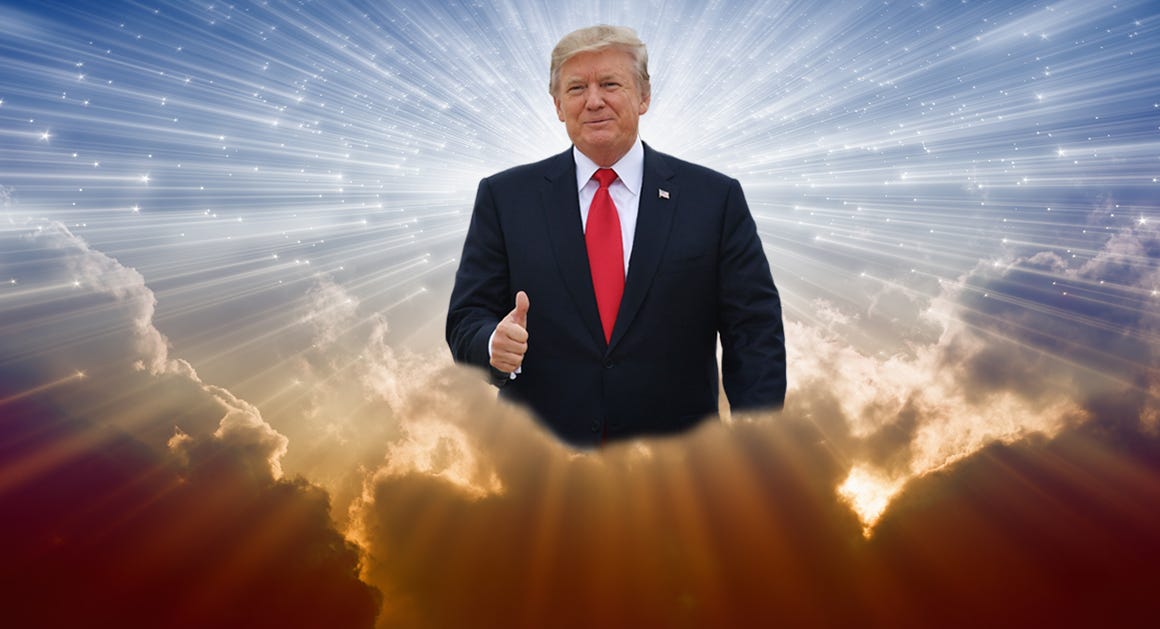


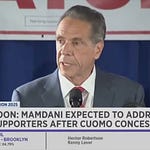

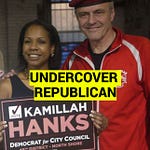




Share this post